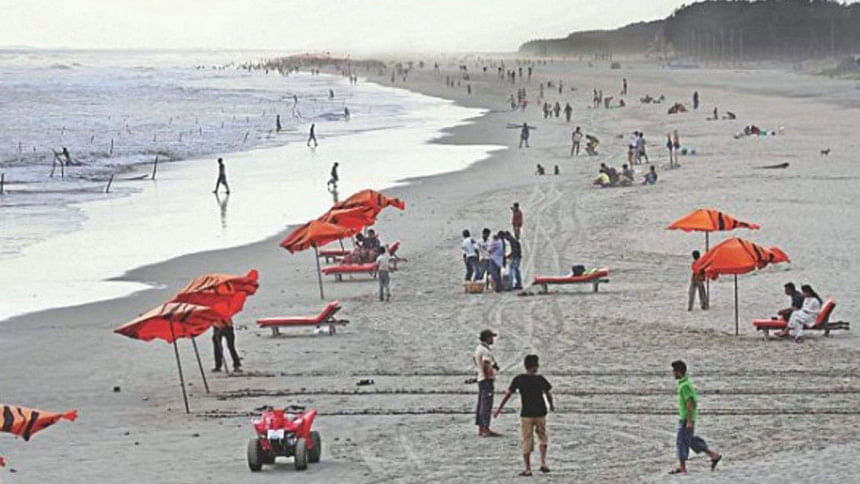Single-use plastic: Coastal areas still littered with them

The Department of Environment has failed to comply with a High Court directive that asked it to stop the use of single-use plastic in hotels, motels, and restaurants of coastal areas in two years.
The HC had issued the directive in January 2020 in response to a writ petition filed by Bangladesh Environment Lawyers Association in mid-2019. The DoE was asked to put an end to the use of such plastic by 2021.
The government department last year launched a three-year (2021-23) project to stop the use of single-use plastic in 12 coastal districts. It has so far held just one meeting with hotel, motel owners in Cox's Bazar.
The HC in its order had also asked the DoE to submit a compliance report to it by 2021, but the government body responsible for protection of the environment is yet to do so.
Abul Kashem, general secretary of Cox's Bazar Hotel, Motel Owners Association, said the DoE held a meeting with them in Cox's Bazar last year. Officials at the meeting encouraged hotel, motel and restaurant owners to stop using single-use plastic.
"Since then, we have not seen any step by the department to contain single-use plastic," he added.
Speaking to The Daily Star, Razinara Begum, director (waste and chemical waste management) of DoE, said they in cooperation with World Bank prepared a roadmap to stop the use of single-use plastic in hotels, motels, and restaurants.
Asked about the reason for the delay in complying with the HC directive, she said, "We need time to make people aware of pollution and prepare them mentally to look for alternatives to single-use plastic."
Razinara said they identified coastal areas exposed to plastic pollution and held consultation meetings with different stakeholders.
"We can't stop its use overnight. We have to reach the goal of zero single-use plastic with cooperation from all," she added.
Single-use plastic includes single-use cups and plates, lollipop sticks, wrappers, sachets, extruded polystyrene, plastic cutlery, cigarette filters, cotton swabs, coffee stirrers, small water and juice bottles, plastic bags and multilayer plastic packaging.
Concerns are growing worldwide about plastic pollution, especially in oceans, where nearly half of the single-use plastic products end up, causing deaths to marine life. Plastic also enters the human food chain, multiple studies have found.
Syeda Rizwana Hasan, chief executive of Bangladesh Environment Lawyers Association, said she sees no reason why the delay in complying with the court order occurred.
"As the authorities are assisted by law enforcers, it's just a matter of their willingness to stop the use of single-use plastic in hotels, motels, and restaurants," she told The Daily Star.
The DoE will implement the three-year project in the coastal districts of Bagerhat, Barguna, Bhola, Chattogram, Cox's Bazar, Feni, Khulna, Laxmipur, Noakhali, Patuakhali, Pirojpur and Satkhira.
A total of 40 upazilas in the 12 districts and eight selected areas of Chattogram city are within the project area, shows the Action Plan of DoE.
Bangladesh has been seeing a steep rise in plastic usage over the years. As per a World Bank research conducted in 2020, per capita plastic usage in the country was 3kg in 2005. The figure went up to 9kg in 2020.
According to World Bank data released last year, Bangladesh produces 8,21,250 tonnes plastic annually. Of the amount, 2,93,825 tonnes is recycled each year.


 For all latest news, follow The Daily Star's Google News channel.
For all latest news, follow The Daily Star's Google News channel. 




Comments